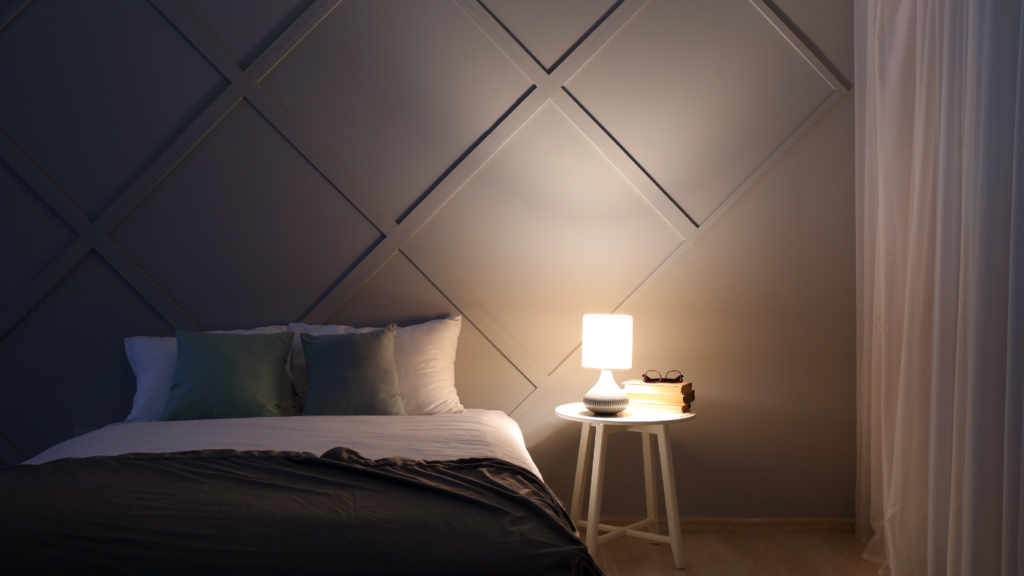
Why is restful sleep so important for people with IBD?
Restful sleep is one of the most important foundations of our health. When we sleep well, our bodies can regenerate more effectively, we feel more energized, and our emotions stay balanced.
For people with IBD (Inflammatory Bowel Disease), high-quality sleep is especially valuable: it can reduce the risk of flare-ups, surgeries, or secondary illnesses like depression.
Still, IBD often leads to sleep problems and disorders. Recent studies show that 70% of people with IBD suffer from sleep issues—both during flare-ups and remission.
During an active flare-up, symptoms often occur at night, stealing precious hours of rest. But even people in remission experience sleep problems more often than healthy individuals. One likely reason: lingering inflammation in the body.
Poor sleep can, in the worst case, trigger a vicious cycle—causing new flares and symptoms, which in turn worsen sleep.
But you don’t have to sit back and accept this cycle. A few small changes can have a big impact—helping you improve your sleep and positively influence the course of your IBD.
12 Best Tips for Better Sleep with IBD
1. Establish a Sleep Routine
Try to go to bed and wake up at the same time every day. A consistent sleep rhythm supports sleep quality and overall health by stabilizing your body’s circadian rhythm. This makes it easier to fall asleep and stay asleep and promotes deeper rest.
2. Use Your Bed Only for Sleeping
Avoid using your bed during the day—even for short breaks. Keeping the bed strictly for sleeping helps your brain associate it with rest. Choose another spot like the couch or a cozy chair for relaxing during the day.
3. Eat Light in the Evening
Heavy or greasy meals can make it harder to fall asleep. Instead, choose light, easy-to-digest foods like vegetables, lean proteins, and complex carbs. These are gentler on your digestive system and support a calm night’s sleep.
4. Limit Daytime Naps
Napping too much during the day can throw off your natural sleep-wake rhythm. If you need rest due to symptoms, limit naps to 20–30 minutes to avoid trouble falling asleep at night.
5. Be Careful with Caffeine
Caffeine blocks adenosine, a brain chemical that promotes sleepiness. Since it stays in your system for 6–8 hours, try to avoid coffee and other caffeinated drinks after lunchtime.
6. Keep Your Bedroom Cool
A cooler bedroom helps your body lower its core temperature—a natural part of falling asleep. Aim for a room temperature between 16°C and 19°C (60–66°F) to support deep, restorative sleep.
7. Get Daylight During the Day
Exposure to natural sunlight during the day helps regulate your internal clock and supports healthy melatonin production in the evening. This makes it easier to fall asleep at night.
8. Reduce Screen Time in the Evening
Screens emit blue light, which suppresses melatonin. Try to avoid phones, tablets, and laptops for at least one hour before bed. Instead, try relaxing activities like reading or meditating.
9. Avoid Alcohol
Alcohol might make you feel sleepy at first, but it disrupts deep sleep and REM phases later in the night—leaving you less rested in the morning.
10. Create a Calming Evening Routine
A predictable bedtime routine with calming activities helps signal your body it’s time to wind down. Reading, stretching, or taking a warm shower are all great options to help reduce stress and prepare for sleep.
11. Avoid Intense Workouts Late in the Day
Vigorous exercise raises your heart rate and body temperature, making it harder to relax. Try to finish workouts at least 2–3 hours before bedtime. Gentle activities like walking or yoga are fine in the evening.
12. Manage IBD Symptoms and Pain
Uncontrolled pain or symptoms like cramps and diarrhea can make restful sleep nearly impossible. Managing these through medication, diet, or relaxation techniques can help. Try warm showers, calming rituals, or talk to your doctor for support.
Relaxation Technique: Progressive Muscle Relaxation (PMR)
This technique involves tensing and relaxing different muscle groups to promote full-body relaxation.
How it works:
- Get comfortable and close your eyes.
- Breathe deeply and slowly.
- Begin by tensing a muscle group (e.g., hands) for 5–10 seconds.
- Then release the tension and focus on the feeling of relaxation for 20–30 seconds.
- Move through the entire body—from head to toe.
With regular practice, PMR can help reduce stress and improve sleep quality.
Conclusion: Better Sleep with IBD Is Possible
Healthy routines and good sleep hygiene can improve your sleep and support your IBD long-term.
We hope this article was helpful. We’d love to hear your feedback!
Want more tips on how to relax and sleep better with IBD?
👉 [Relaxation Techniques for IBD – The Best Ways to Reduce Stress]nungsmethoden, um einen erholsamen Schlaf bei CED etablieren zu können: Entspannung bei CED – Die besten Techniken zur Stressbewältigung
Quellen
Chinoy ED, Duffy JF, Czeisler CA. Unrestricted evening use of light-emitting tablet computers delays self-selected bedtime and disrupts circadian timing and alertness. Physiol Rep. 2018 May;6(10):e13692. doi: 10.14814/phy2.13692. PMID: 29845764; PMCID: PMC5974725.
Perry GS, Patil SP, Presley-Cantrell LR. Raising awareness of sleep as a healthy behavior. Prev Chronic Dis. 2013 Aug 8;10:E133. doi: 10.5888/pcd10.130081. PMID: 23928458; PMCID: PMC3741412.
Storr, M. Ausreichend Schlaf schützt vor Colitis ulcerosa. MMW – Fortschritte der Medizin 156, 52 (2014). https://doi.org/10.1007/s15006-014-3806-z